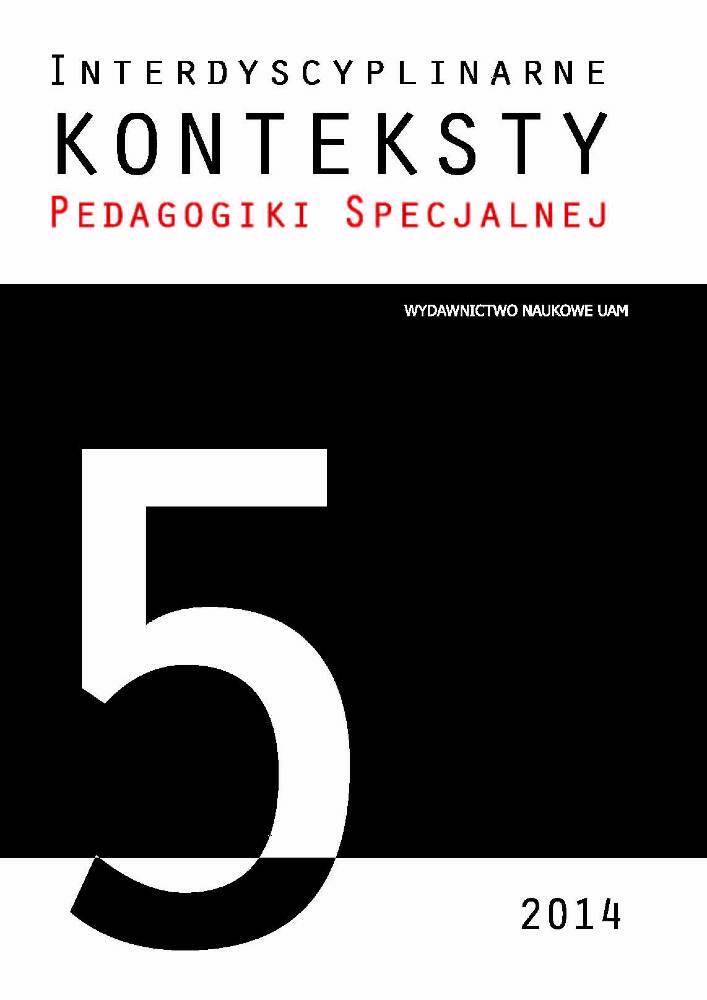Abstrakt
The aim of this deliberation is the presentation of the theoretical basis of liberal democracy as explained by Ernesto Laclau. The conception, which in my opinion, is a useful tool to analyze the social-political situation of the Excluded (disabled) in Poland. From the different important dimensions of these situations, I focused on the search for theoretical justifications for emancipation. An issue which is probably the oldest and most often anylised social issue. Emancipation has still not lost its significance despite the changes which took place through the history in the sense of understanding this term and the fields to which emancipation refers. The issue of emancipation of the Excluded (disabled) as shown by Laclau I analyze in the context of theory of discourse and hegemony. This is due to the fact that I decided that both discourse and discursive conception of hegemony are the conditions of the possibiity of existence of what is both social as well as a basis field of analysis of a social- -political situation of the Excluded (disabled). By presenting the theoretical perspective by Laclau (discourse, empty signifier, hegemony, emancipation) I try to show that this perspective not only shows “the meaning framework thanks to which the social life my take place” but also the multicontextivity and diversification of the social issued and different possibilities of its interpretation. An important characteristic of this perspective is also the fact that it points out the need of trying to improve democracy. Like Laclau claims, “the moment of imagining of a desire is maybe more important than its accomplishing, because it is the moment that motivates us to action and initiates the creative thinking”.
Bibliografia
BUTLER J., LACLAU E., ZIZEK S., Contingency, Hegemony, Universality: Contemporary Dialogues on the Left, Versos, London 2000.
GĄSIOR-NIEMIEC A., Teoria dyskursu Laclau i Mouffe jako narzędzie analizy socjologicznej – przypadek dyskursu „osiedli grodzonych”, [w:] Analiza dyskursu w socjologii i dla socjologii, red. A. Horolets, Wydawnictwo Adam Marszałek, Toruń 2008.
KALISZEWSKA K., ŻÓŁKOWSKA T., The Social Construction of Social Identity of People with Intellectual Disability, „International Journal of Developmental Disabilities”, 2013, vol. 19, s. 1–15.
LACLAU E., Dlaczego puste znaczące mają znacznie dla polityki, [w:] Emancypacje, red. L. Kaczanowski, K. Liszka, Ł. Nysler, A. Orzechowski, L. Rasiński, A. Syp-niewska, Wydawnictwo Naukowe Dolnośląskiej Szkoły Wyższej, Wrocław 2004a.
LACLAU E., Dyskurs, [w:] Przewodnik po współczesnej myśli politycznej, red. R. Goodin, P. Pettit, Książka i Wiedza, Warszawa 2002.
LACLAU E., Uniwersalizm, partykularyzm i problem tożsamości, [w:] Emancypacje, red. L. Kaczanowski, K. Liszka, Ł. Nysler, A. Orzechowski, L. Rasiński, A. Syp-niewska, Wydawnictwo Naukowe Dolnośląskiej Szkoły Wyższej, Wrocław 2004b.
RASIŃSKI L., Dyskurs i władza. Zarys polityki agonistycznej, Wydawnictwo Naukowe Dolnośląskiej Szkoły Wyższej, Wrocław 2010.
RASIŃSKI L., Wstęp, [w:] E. Laclau, Emancypacje, Wydawnictwo Naukowe Dolnoślą-skiej Szkoły Wyższej Edukacji TWP, Wrocław 2004.
SEPCZYŃSKA D., Ernesto Laclau – postmarksistowska koncepcja wspólnoty politycznej, [w:] Z myśli hiszpańskiej i iberoamerykańskiej. Filozofia – literatura – mistyka, red. M. Ja-głowski, D. Sepczyńska, Instytut Filozofii UWM, Olsztyn 2006.
